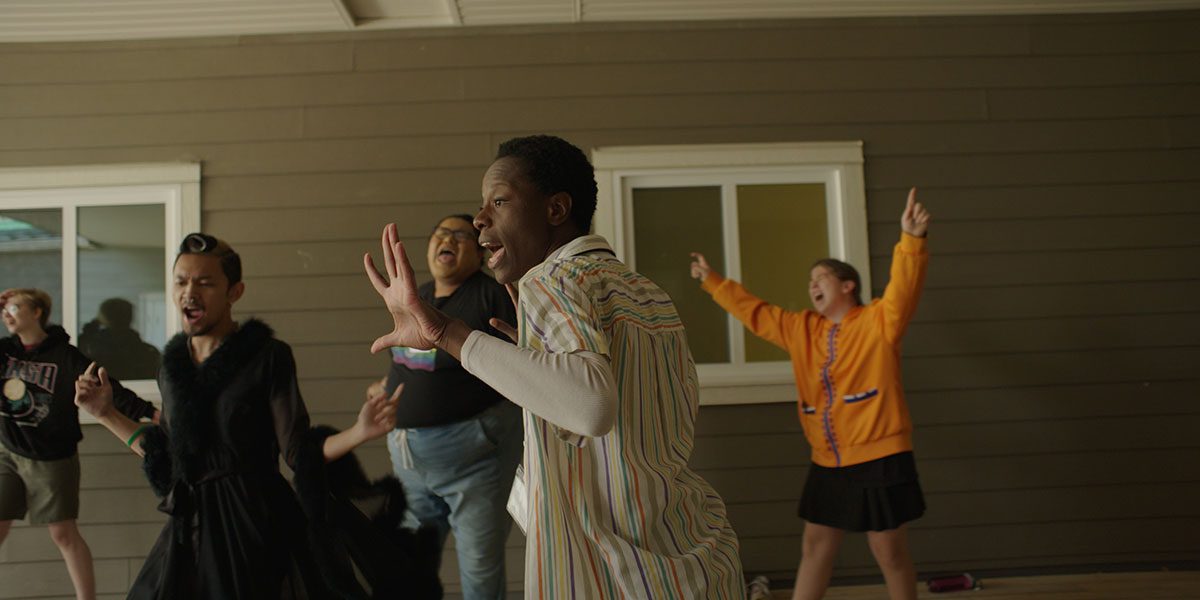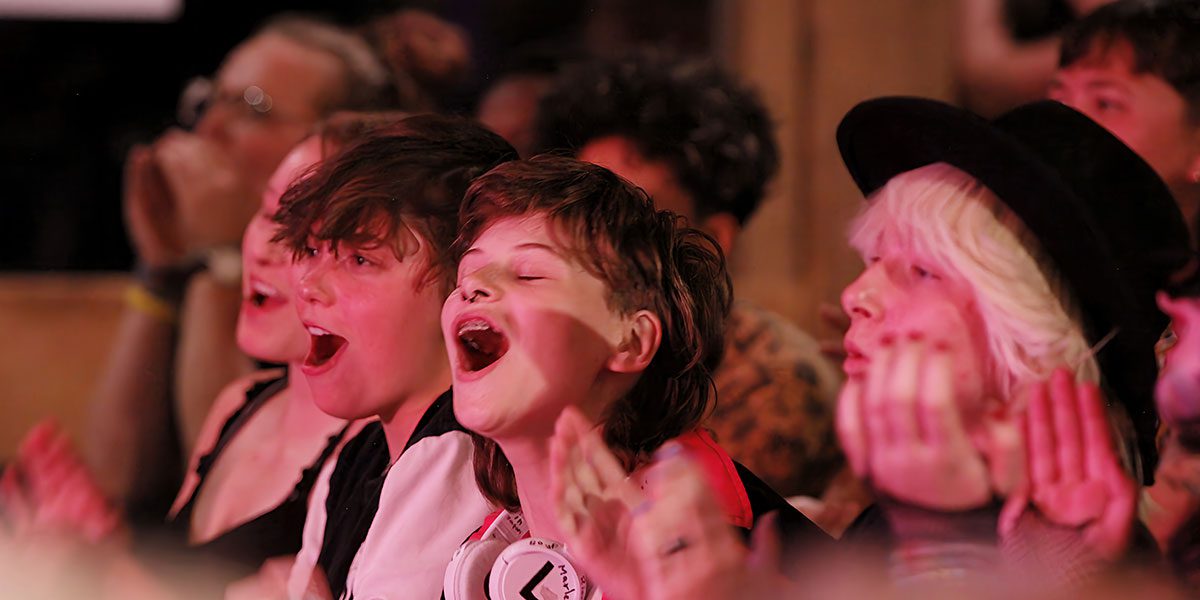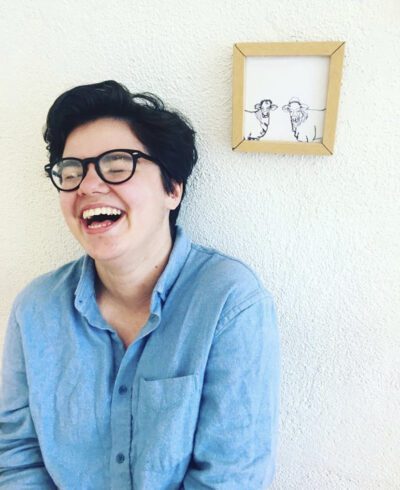“Our job is to get them to become kids again,” says Marshall, Camp fYrefly’s artistic director. Camp fYrefly is a summer camp in rural Alberta for queer, non-binary, and trans teens. As Marshall says, the entire purpose of the camp and, subsequently Summer Qamp the documentary, is to create a place that instills young people with a sense of self-love and connection. Sure, there are also the expected camp activities like arts and crafts, archery, and horseback riding, but the teens are not attending only to tell scary stories around the campfire. They’re looking for something much more essential, something that’s missing in their day-to-day lives: a feeling of inclusion.
Summer Qamp follows a handful of teens who attended Camp fYrefly over the course of the 2022 season. Prior to the drop-off at camp, they’re all nerves, awkwardly watching their words about their expectations for fYrefly. The audience can sense their feeling of not wanting to get their hopes up about the camp, afraid to believe that the bullying and negativity they experience at school are simply an inescapable aspect of reality. That even though camp promises to be a place of freedom, it may not be the revelatory experience they hope it will be because of the pain they’ve already endured. Some of the documentary subjects have fully come out to their parents and some have not. Some have come out quite a few times as they try to find the words that best suit them. While they may be the only person in their town who identifies as queer or trans masc, that’s certainly not the case at Camp fYrefly.

When explaining that they were going away to a gay camp, one of the attendee’s friends thought they meant a conversion camp, but fYrefly is actually something much more akin to an anti-conversion camp. It’s an affirmation camp, a place where the fellow campers and the counselors understand what it’s like to be part of the LGBT+ community. It’s overwhelming at times for some of the teens as they experience community for the first time. Even if they have supportive friends or family, there’s warmth and comfort in being surrounded by people who identify in similar ways. It’s as if a barrier is ripped away, and instead of focusing obsessively on how other people will view their gender expression or identity, these campers can finally let go of the scared breath they’ve been holding.
One of the documentary’s most touching moments is when a group of older queer people visit the camp to talk about their experiences growing up in small Canadian towns. One older person describes a gay bar in their neighborhood that sold tickets so others could secretly watch the queer people in the bar. While our contemporary society doesn’t have establishments like this, that’s not to say that identifying as queer in the 21st century is easy. There are countries around the world where people can be arrested (and worse) for openly being gay. In the United States, the hard-fought rights for LGBT+ people are being rolled back. To be a young teenager falling in love for the first time, surrounded by hate, is extraordinarily difficult. It forces them question their identity and things they know to be true during a time when they should be able to freely experience teenage puppy love.

From a personal point of view, I’m envious of these kids. They get to spend a summer in the woods with a weight taken off their shoulders. Even as someone who has extremely loving and supportive parents, the thought of Camp fYrefly sounds dreamy. I saw so much of myself in Mia, a floppy-haired, anxious, quiet little teen who plays saxophone at the talent show. The kids in Summer Qamp talk about how fYrefly gives them the opportunity to be the supportive force they may not have in their own lives. It’s a sort of circular, vicarious way of righting wrongs. Watching Mia open up and thrive throughout the documentary felt a bit like that mystical way of fixing my past through someone else’s experience. High-school-me will always be that anxious, awkward kid, but that doesn’t have to be true for everyone anymore.
Summer Qamp ends with a chant. One that seems to happen organically. Over and over, the campers and the counselors are shouting “queer joy.” If you listen closely, you can hear so many emotions in those repeated two words. There’s anger in there. Anger that they feel unsafe or unwelcome on this planet, sometimes at the hands of ignorance. There’s sadness that summer camp doesn’t last forever. There’s levity, joy, hope, and all the good things that come from finding your people.




